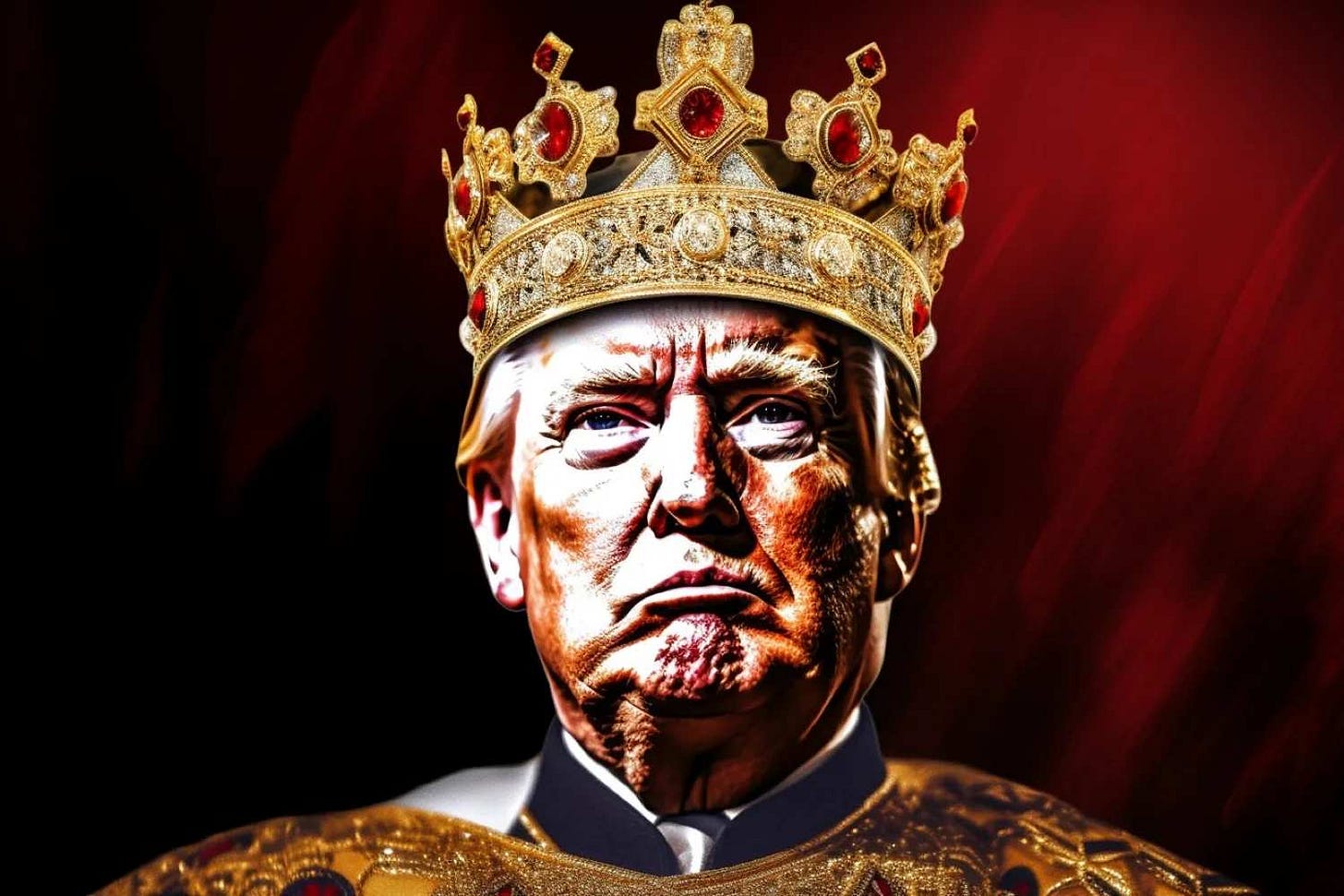If you want to stop a fascist takeover, we must act now: Here's how
We are only six months into Trump 2.0, and already the National Guard is controlling Washington D.C. But that’s not all. Donald Trump plans to also target Manhattan, Chicago, Baltimore, and Oakland, according to the president himself. Because this is how fascism works, and once a democracy falls into the hands of a petty dictator, democratic collapse can happen in the blink of an eye. So what can citizens do now before it’s too late?
“We have to fight everywhere and all at once,” said Michael Ansara, a lifetime activist, poet, and author of the new memoir, The Hard Work of Hope, who we spoke to over the phone. “As bad as the [Vietnam] war was, and as horrible as Jim Crow in the South was, the threat that we're experiencing today is astronomically greater,” he warned us.
“We face a threat to the Constitution, to American democracy, and to decency that is comparable only to the Civil War in the 1860s. It is that severe of a crisis.”
“The answer has to be for people to organize themselves,” he continued, explaining that no matter how you take part in saving the United States from a dictatorship — whether it’s by knocking on doors, making phone calls, writing letters to Congress, boycotting corporations, or marching in the streets — it all hinges on getting enough people to act. “Organization. Organization. Ultimately, our political power is people working together. That's the only real power that we have.”
But, although we’ve seen a passionate upsurge of mobilizing this year — as in the Tesla Takedown and No Kings Day protests over the last few months — unfortunately, organizing is still lacking, according to Ansara.
“What we're not doing nearly well enough is on the organizing — going and building small teams and groups that can go out and talk to their neighbors,” Ansara said, explaining that we need to amass many more teams of volunteers to talk to the folks in line at the Veterans Administration, or in the lines of Social Security, for example. “We need people to talk to the parents who are losing Head Start, and who are losing Pell Grants and won't be able to go to college,” etc.
“We’re behind on the kind of organizing and building groups that will last and sustain,” he told us.
So what does it take to band together with the rest of hard-working, well-meaning Americans who might not see eye-to-eye on every issue but who do believe in our Constitutional rights, as well as a free and democratic society? With people who might have voted for Trump, or who might have not voted at all, but who are now disillusioned with Trump’s angry, ugly leadership style? Between Ansara’s book and our interview with him, we were able to gather a list of his six main tips on how to become an effective organizer:
Start local, and start small. But don’t go it alone. Teamwork is how to get long-lasting, sustainable results.
Join an organization (such as Indivisible or Volunteer Blue). Or be like Ansara and join many organizations! (See links below).
Listen to people’s problems, even if those problems are different from your own. Listening will connect you to others, while preaching will repel them. As Ansara put it, “if you want to get people to listen to you, you have to listen to them.”
Find common ground (even if they voted differently from you). “You have to find where you have shared pain, shared values, shared hopes. And that often means not fighting about other issues.”
Don't pick fights with those who disagree. Instead, see tip #4 (find common ground).
Be approachable. In the 1970s, Ansara went so far as to shave his beard to better connect with middle America. “Clothes are just costumes,” he told us. “I need to dress in a way that they [the folks he’s trying to reach] don't find offensive. I'm trying to open minds, not close them.”
Although not all Trump voters are reachable, Ansara believes that many are. “I don't think we'll get the hardcore fascists. We won't reach them. But there are millions of others who, right now, when they're being polled, they're saying, ‘I don't like what's going on.’ Those are the people we need to reach, and we need to bring them over.”
Ansara’s book, The Hard Work of Hope, is a memoir published by Cornell University Press. The groups he works with include: Indivisible, Volunteer Blue, Third Act, and Crimson Courage.
Mark Frauenfelder and I talked to Ansara last week, and will run the full interview in another post.






